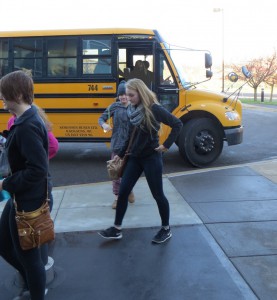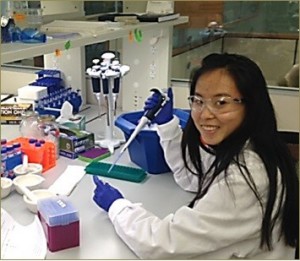BTCI provides our students an opportunity that they could never get in the classroom.
—Jim Geoffrey, Biology Teacher, Kaukauna High School
Your bus has arrived and parked in the circular driveway at the front of the BioPharmaceutical Technology Center on the Promega Corporation campus in Fitchburg, WI. Your BTC Institute hosts – and instructors – for your field trip are Barbara Bielec (K-12 Program Director) and Ryan Olson (Biotechnology Instructor). They’ll greet you in the Atrium and direct you to a conference room where you can leave coats and backpacks, and then to the lab you’ll be working in during your visit.
Here’s a taste of what happened next for students from Random Lake High School and Wonewoc High School on December 3rd, and from Kaukauna High School on December 4th.
Continue reading “Welcome to Your Biotechnology Field Trip at the BTC Institute!”

